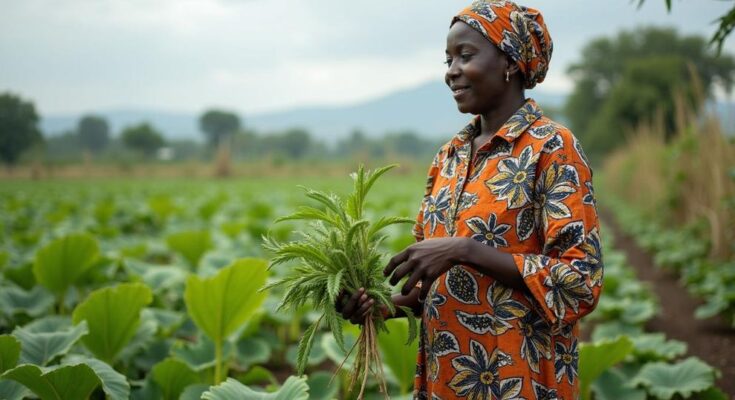The African Development Bank has approved $34.8 million to improve climate resilience in Malawi and Zimbabwe. This funding, part of the Africa Disaster Risk Financing initiative, aims to enhance climate risk management, provide financial protection against disasters, and promote index-based crop insurance. The project seeks to mitigate losses for vulnerable communities and align with the Bank’s strategic objectives for economic diversification and improved quality of life.
The African Development Bank (AfDB) has recently sanctioned a substantial amount of $34.8 million in grants aimed at enhancing climate resilience and adaptive capacity in regions of Malawi and Zimbabwe. This initiative, part of the Bank’s Africa Disaster Risk Financing (ADRiFi) agenda, is designed to fortify institutional frameworks related to climate risk management and increase financial safeguards against the effects of climate disasters. The initiative specifically seeks to implement sovereign climate disaster risk transfer mechanisms while promoting index-based crop insurance to alleviate impacts from droughts and production insecurities at the grassroots level. Particularly, Malawi and Zimbabwe are vulnerable due to their inadequate frameworks for managing and adapting to pressing climate threats, which include droughts, flooding, and tropical cyclones. Recognizing this gap, the African Development Bank underscores the importance of strengthening disaster risk management systems, enhancing early warning capabilities, and establishing robust institutional arrangements for effective climate preparedness and resilience. The project anticipates that insurance disbursements will provide timely financial relief to mitigate losses stemming from climate-induced disasters. This support is fundamental in preventing households and businesses from experiencing financial distress, thereby averting potential poverty or bankruptcy. Furthermore, the initiative aims to inspire behavior alterations in participants, propelling them to invest more in climate-resilient activities or save towards future insurance needs. The project will further build upon the established successes of the ADRiFi program and the collaborative contributions of its partners, which have considerably strengthened the financial resilience of both nations. An example of the program’s efficacy is illustrated by the African Risk Capacity, which had previously facilitated over $45 million in assistance to farmers affected by the El Niño-induced drought in 2024-25. This financial provision enabled crucial food aid and recovery measures, supporting communities in overcoming adversity and progress toward recovery. Moreover, the proposed project aligns seamlessly with the Bank’s key objectives, particularly with respect to the “Feed Africa” initiative and the broader goal of improving the quality of life for Africans. It is also congruent with the AfDB’s strategic framework for the decade spanning 2024 to 2033, which emphasizes bolstering economic diversification via investments in agricultural infrastructure and related value chains.
The African Development Bank has taken significant strides to address climate-related challenges faced by vulnerable communities in Africa. By facilitating financial support and providing strategic programs like the Africa Disaster Risk Financing (ADRiFi), the Bank aims to enhance resilience among regions that are severely impacted by climate disasters, such as Malawi and Zimbabwe. These countries frequently confront challenges like drought, floods, and tropical storms, undermining their economic stability and food security. Through targeted interventions, including climate risk insurance and improved disaster management systems, the Bank seeks to empower local populations to better withstand the adverse effects of climate change and foster sustainable livelihoods.
In conclusion, the African Development Bank’s approval of $34.8 million in grants for Malawi and Zimbabwe is a pivotal step toward enhancing climate resilience and adaptation in regions most susceptible to climate disasters. By focusing on institutional capacity building, financial protection measures, and the promotion of innovative insurance solutions, the initiative aims to strengthen the preparedness of vulnerable communities. This collaborative effort reflects a commitment to not only alleviating immediate climate impacts but also fostering long-term sustainability and economic diversification in the affected nations.
Original Source: www.reinsurancene.ws




